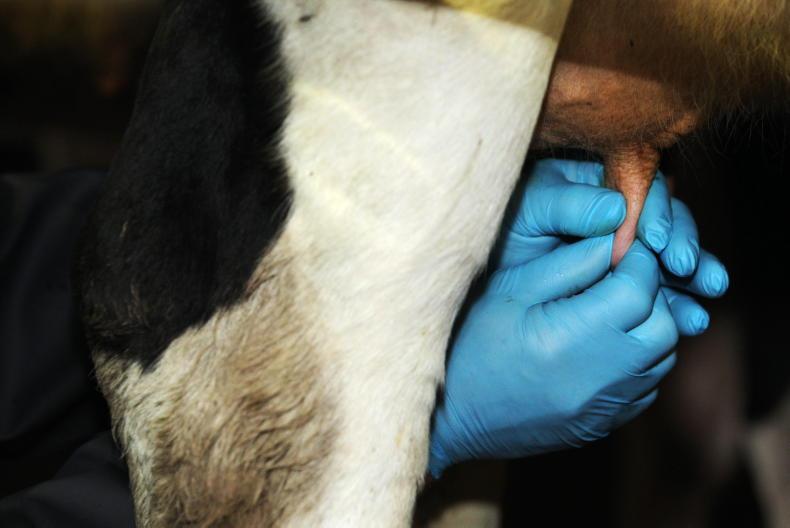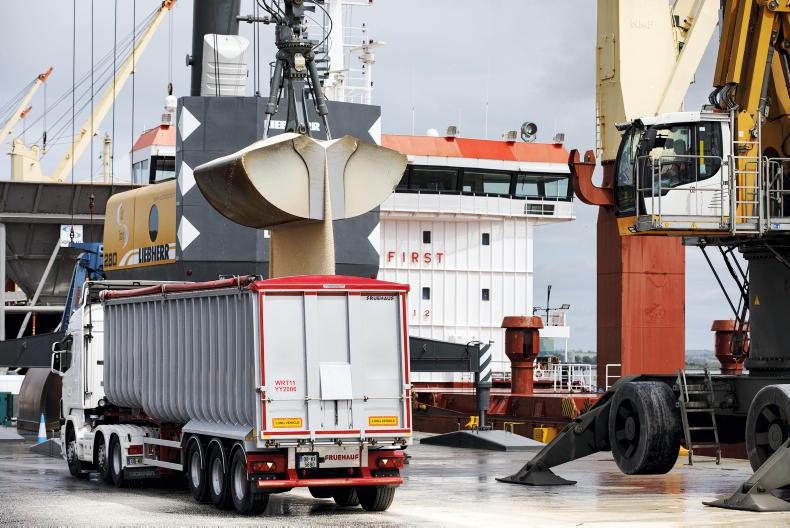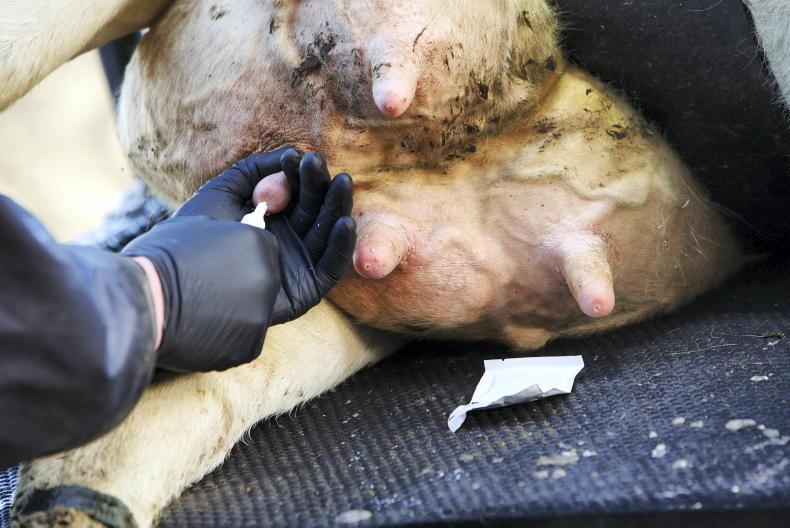Drying off
Most farmers are now well into drying off mode. Selective dry cow therapy seems to be going well but the true test will be next season when we see the SCC and mastitis infection rates of the cows that got sealer only this back-end.
To avoid big problems, there are two key things to keep in mind. Firstly, make sure to have good information on the cows that get sealer only. Teagasc research suggests that any cow with an SCC of greater than 100,000 at any test should get antibiotics as well as sealer.
For first lactation cows this drops to an SCC of less than 70,000. Secondly, hygiene at drying off is of critical importance and cannot be taken seriously enough. Those that are lax at this will pay for it dearly next season.
First lactation cows are often the main cause of infection within a herd, accounting for a disproportionate contribution to SCC and clinical mastitis.
Preventing infection in this years’ heifers begins now, making sure they are lying on clean and disinfected cubicle beds is a good start, but teat sealing this group should also be considered.
Some farmers are asking if cows that are not getting antibiotics need teat seal at all? Teagasc research results suggest that cows that get sealer have lower infection rates than those that get neither sealer nor antibiotics at drying off.
Nitrates
The Irish Farmers Journal will host a nitrates information meeting in Corrin Mart, Fermoy next Monday night at 7:30pm.
There are huge changes coming for nitrates, particularly regarding the reduction in the upper limit for derogation farmers from 250kg to 220kg, on top of the introduction of banding next year.
It’s important that farmers are informed of the changes, know what is coming, why it is coming and what they can do to prevent a further erosion of the derogation.
Tadhg Buckley from IFA will go through the effects of the changes at farm level. The meeting will also be attended by Richard Scheper, dairy analyst with Rabobank in the Netherlands who will give an overview of the global and European dairy market for 2023. Farmers can register for the free event on www.ifj.ie/nitrates.
Weather
The cold weather has made farming difficult, with water pipes freezing and yards turning slippery. With a further temperature drop to come, make sure milking machines are well drained every evening.
Some farmers add salt to the final wash to prevent the water in pipes freezing, this is particularly important where there is extra instrumentation in machines, such as milk meters, that can trap water which can then freeze and block up. The rate is 2.5% salt, so 0.5kg in 20l of water.
Drain all wash down hoses and power washers. Use red lamps or other electrical heaters in pump houses and plant rooms to prevent pipes and pumps from freezing.
Farmers that are out-wintering cattle on kale or rape need to be careful when feeding out as the crop shouldn’t be fed when frozen, so wait until it thaws before giving the next break.
It may be necessary to have silage or hay available as a back-up if no thaw is likely for a few days.









SHARING OPTIONS